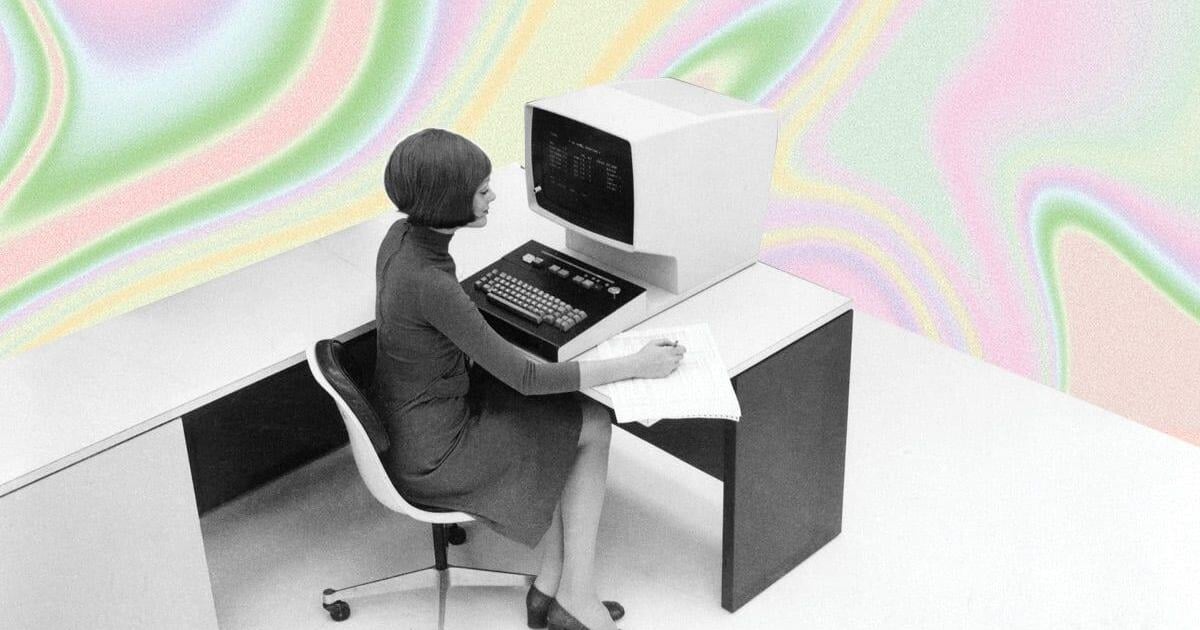Canadian writer Carla Ciccone was diagnosed with ADHD at 39, after the birth of her daughter. In her new book, Nowhere Girl: Life As A Member of ADHD’s Lost Generation, a reference to the many undiagnosed girls or women who find themselves struggling without support, she examines how this neurodiversity has affected the many facts of her life, from adolescence to relationships to parenting. Here, she explores how it can affect women in the workplace.
My friend’s ex-girlfriend Maggie, a strong, funny, whip-smart woman I would eventually become close with, helped me get an interview at Country Music Television Canada, which doesn’t exist anymore and felt like it barely existed then. Although I knew very little about contemporary country music, I professed my love for Johnny Cash and Dolly Parton and got the job. It entailed writing comedy bits for a weekly music video countdown show, helping out on various live music productions, and doing odd jobs as needed, like setting up the rider for a One Direction show. I said ciao to Nonna and rented a bachelor apartment in East Toronto.
I loved working on the show itself, but I also felt like a giant fraud at the office. It was the kind of place where people taunted and made fun of each other, and new hires were mildly mocked until they proved themselves worthy. Some of my coworkers referred to me as “intern” even though I was a paid contract employee. Were they joking? Did they hate me? I felt like an inept middle schooler—a jumble of nerves and hurt feelings who didn’t have the chops for showbiz.
Come on, bitch, do your work! I’d heckle myself while I dicked off for most of the day, staring at my split ends or picking off nail polish in front of my work computer. I’d write scripts for the show from home at night while perched on top of an air mattress in my tiny apartment. I didn’t know why I couldn’t just adapt to my surroundings and work while I was actually at work.
The reasons I thrived during live shows and concert tapings—the pressure, the excitement, the quick thinking required—were the same ones that made daily tasks, like gathering research on small-town American diners for a reality show my boss wanted to pitch, so painfully boring.
After nine months of last-minute one-month contract extensions, my boss, a fifty-something man dressed like a nineties teen, called me into his office and said that the show was being trimmed down and my services were no longer needed. I knew this was coming. They had hired an actual unpaid intern to take over the more administrative tasks of my job that I disliked and had a hard time with. I was being replaced with a younger and cheaper model. I ran to the bathroom and cried. Great job, asshole.
Not being able to pay attention, like me with those diners—why couldn’t I just research the damn diners?!—is the ADHD symptom most strongly associated with problems at work. And yeah, if you can’t focus on your job, it makes it pretty hard to do.
A startlingly accurate (to my experience) 2020 expert consensus out of the United Kingdom found that working women with ADHD frequently struggle with “disorganization, forgetfulness, inattention, accepting constructive criticism and appraisal, and difficulties managing interpersonal relationships with colleagues.”
Professor [Stephen] Hinshaw told me that a lot of these issues come down to the unpredictable variability of ADHD symptoms. “Regardless of the task, as it gets more rote or more difficult, you have trouble maintaining consistent performance,” he says.
“The inattentive type [of ADHD] is likely to rear its head over and over again in a particularly challenging job,” Hinshaw says. This is why someone who was coping relatively well might finally get diagnosed when faced with big career changes or new responsibilities. “People get diagnosed in their forties and fifties because they’ve been doing well, and they get into a managerial position and have to make strategic decisions and it’s like hell,” he says.
It’s actually not the behavioural symptoms of ADHD that cause the most mini catastrophes on the job, but the emotional ramifications of them. A 2021 article in the Journal of Neural Transmission found that one of the biggest hurdles faced by workers with ADHD was feeling like a fraud, like me in every office I’ve ever worked in. Many subjects reported they were “not meeting their own standards and perceived potential,” which was not usually reflective of their actual performance. They viewed themselves much more harshly than they were being viewed.
Adding to our difficulties is the emotional burden of being a working woman. In many cases, the traits that can help advance your career—being competitive, direct, assertive—are the typically masculine traits that women have been punished for and socialized to tamp down in ourselves in favour of gentler, more cooperative qualities.
Excerpted from Nowhere Girl by Carla Ciccone Copyright © 2025 by Carla Ciccone. Excerpted by permission of Random House Canada. All rights reserved. No part of this excerpt may be reproduced or reprinted without permission in writing from the publisher.
This article contains affiliate links, which means The Kit may earn a small commission if a reader clicks through and makes a purchase. All our journalism is independent and is in no way influenced by advertising. By clicking on an affiliate link, you accept that third-party cookies will be set. More information.



